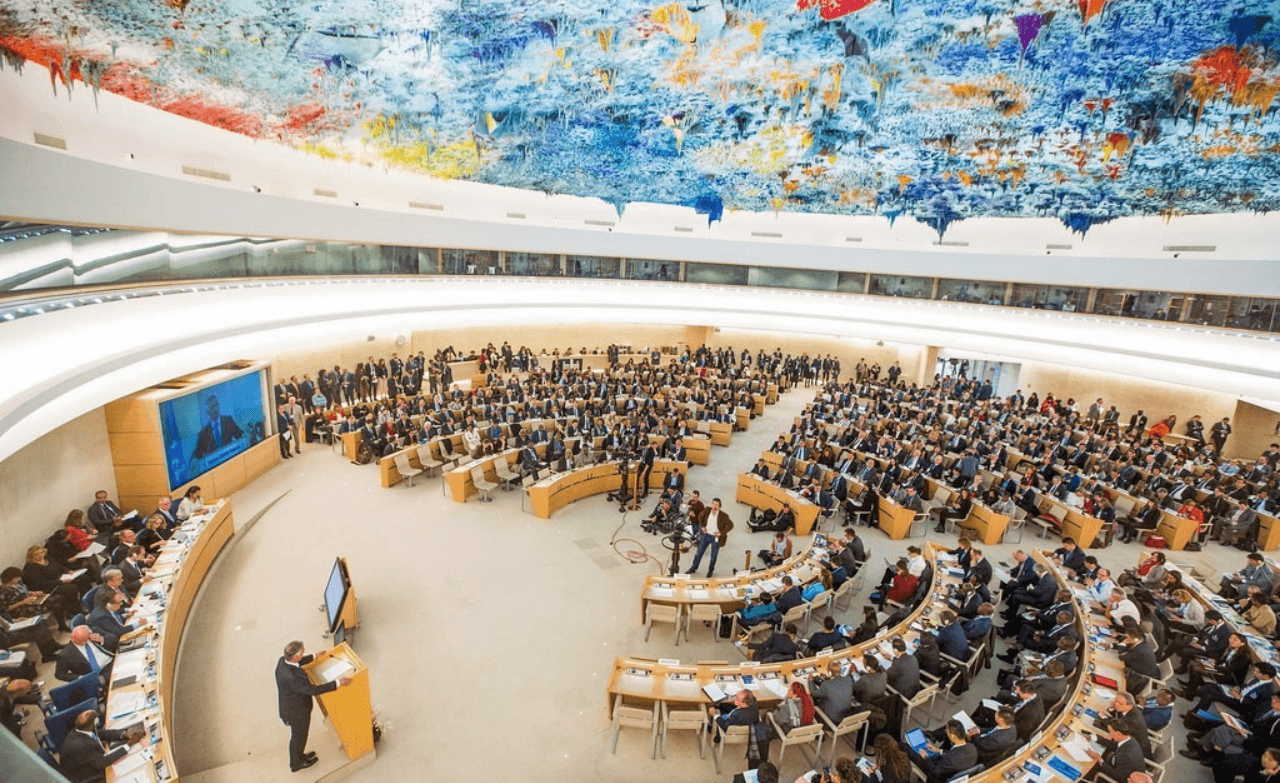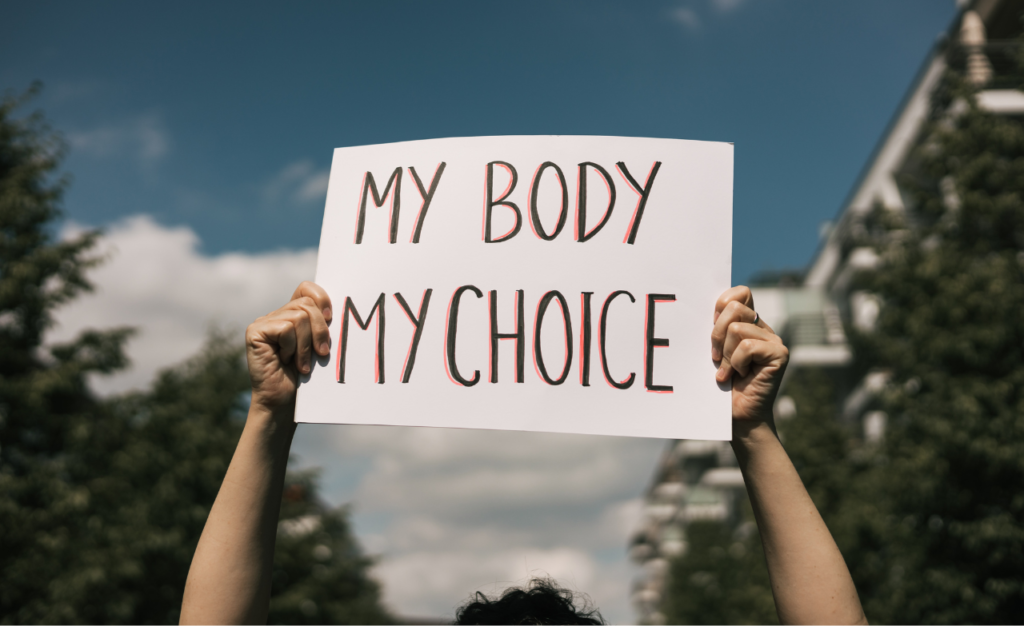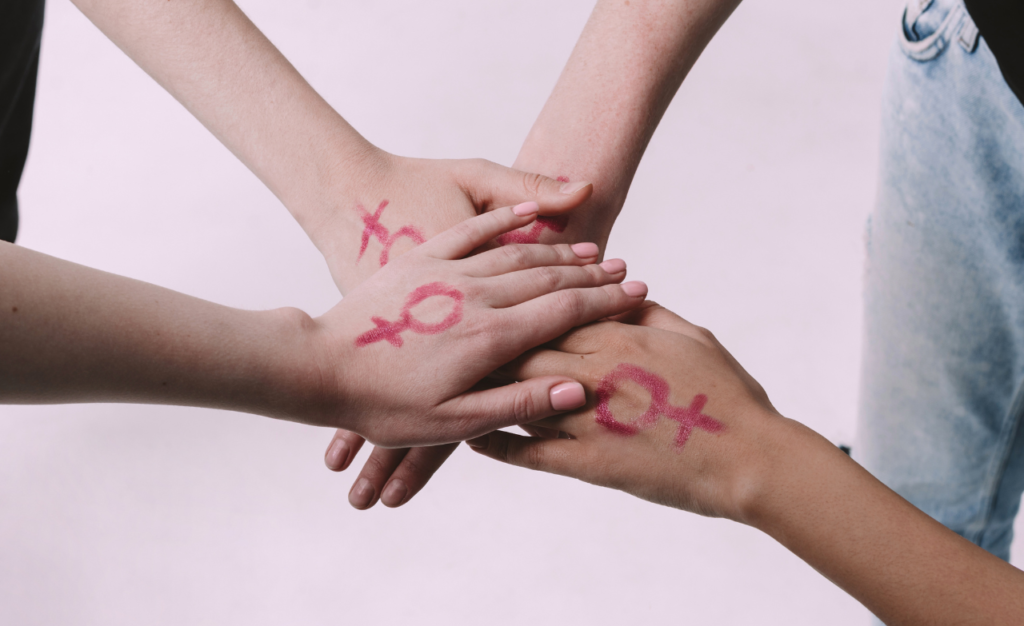Na czerwcowej sesji Rady Praw Człowieka FEDERA przedstawiła stanowisko w debacie z Grupą Roboczą ONZ ds. przeciwdziałania dyskryminacji wobec kobiet w kontekście dyskusji nad aktywizmem młodych kobiet i problemów z jakimi się borykają. Zwróciłyśmy uwagę, że również w Polsce młode organizacje feministyczne działają w bardzo wrogim otoczeniu, zaś ich aktywizm aborcyjny obarczony jest ryzykiem kryminalizacji.
W swoim stanowisku FEDERA odwołała się do wizyty Grupy Roboczej w Polsce, która miała miejsce w 2018 r., po której władze Polski zostały zobowiązane do zapewnienia dostępu do legalnej aborcji w prawie i praktyce. Jak wiemy, mimo tych zaleceń, w 2020 roku w Polsce wprowadzono prawie całkowity zakaz aborcji. FEDERA podziękowała także Grupie Roboczej za przedstawienie swojej opinii przyjaciółki sądu (amicus curiae) do ETPCZ w sprawach dotyczących aborcji, koordynowanych przez FEDERĘ w ramach akcji Skarga Kobiet.
Human Rights Council
50th regular session of the Human Rights Council
16 June 2022
Thank you Mr. President.
I make this statement on behalf of the Federation for Women and Family Planning from Poland.
We welcome the Working Group’s report and analysis on the importance and restrictions faced by young feminist activists, including those organizing for sexual rights. In Poland too, young feminists organizing for abortion access are facing threats, reprisals and criminalization for their activism.
Following its 2018 visit to Poland, the Working Group recommended Poland to ensure access to legal abortion in law and practice.[1] Despite these recommendations, in 2020 Poland introduced a quasi-total ban on abortion which impacts the lives of women and girls who are forced to look for solutions outside of the legal system.[2]
In this context, we welcome the Working Group’s third-party intervention before the European Court on Human Rights in cases concerning access to abortion in Poland.[3] Each of these cases tell the story of a woman, who could be denied access to basic reproductive rights if the abortion law is not liberalised in the future.
Women and girls fleeing the Ukraine war to Poland are now facing exacerbated barriers and lack of access to urgent SRHR services for gender-based violence, including war related sexual violence.
We call on Poland to ensure access to sexual and reproductive health services for all, without discrimination, and call on Polish MPs next week to vote in favour of the bill liberalising access to abortion.
[1] See https://undocs.org/A/HRC/41/33/Add.2, para. 85(c).
[2] See for instance the joint statement by Special Procedures mandates: “Poland has slammed door shut on legal and safe abortions – UN experts.” 27 October 2020.
[3] Intervention by the Working Group on discrimination against women and girls, the Special Rapporteur on the right to health and the Special Rapporteur on torture in the cases of K.B v. Poland, K.C v. Poland, and A.L.-B. v. Poland, available at https://www.ohchr.org/sites/default/files/2021-11/AC-Poland-10Nov2021.pdf
[custom-related-posts title=”Powiązane treści” none_text=”None found” order_by=”title” order=”ASC”]




